In the News | 2021
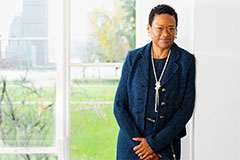 |
In the NewsDecember 17, 2021Putting ideas into actionRichard ByrneTechnology ReviewMelissa Nobles’s research has unearthed numerous cases of police violence against Blacks in the early-to-mid 20th century, and she is using those materials to develop a new archive with the Civil Rights and Restorative Justice project (CRRJ), a program at Northeastern University. She has also written on the interplay of citizenship and racial categories in the census process, and on the politics of formal government apologies for past injustices. |
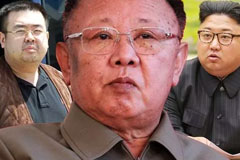 |
In the NewsDecember 16, 2021Kim Jong-un defied father's dying wish with alleged assassination of older brotherJoel DayExpressQuoted: Vipin Narang, a politics professor at the Massachusetts Institute of Technology, said: “The reason to do it publicly is to leave a calling card, to show the world that Kim Jong-un is not afraid to use a weapon of mass destruction at a crowded international airport.” |
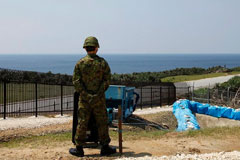 |
In the NewsDecember 7, 2021Why Japan needs more forceful defenceThe EconomistQuoted: “Some people focus on the limits,” says Richard Samuels, a security expert at MIT. “But those are pretty flexible limits: an existential threat is what you call an existential threat.” |
 |
In the NewsNovember 29, 2021Community policing in the Global SouthStephanie M McPherson, IDSS MIT NewsCommunity policing is meant to combat citizen mistrust of the police force. The concept was developed in the mid-20th century to help officers become part of the communities they are responsible for. Fotini Christia is part of a team examining the challenges of implementing community policing across a range of countries. |
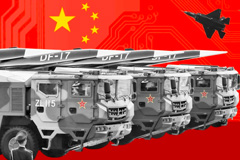 |
In the NewsNovember 15, 2021China’s nuclear build-up: ‘one of the largest shifts in geostrategic power ever’Demetri SevastopuloFinancial TimesQuoted: Vipin Narang, a nuclear security expert at MIT, believes China is engaging in an “eye-popping” nuclear expansion because it thinks “the risk of a conventional war with the US is higher now than ever”. He says the biggest risk is not nuclear war but “an exceptionally intense conventional war where China unloads its massive arsenal of conventional missiles in the Asia theatre without fear of US nuclear escalation”. |
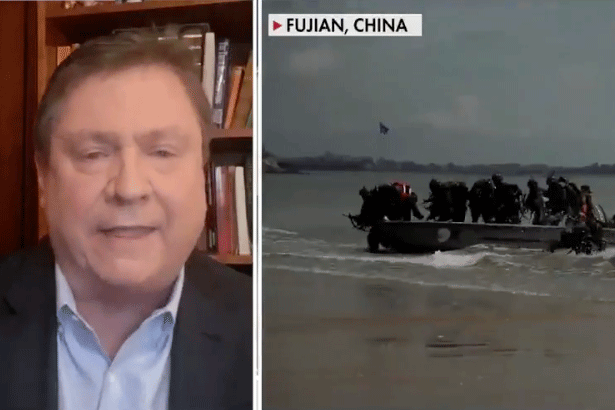 |
In the NewsNovember 14, 2021China is not looking to start a war with USFox NewsInternational security expert Jim Walsh discusses China's upset over US lawmakers visiting Taiwan. |
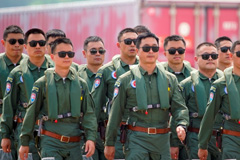 |
In the NewsNovember 10, 2021Will China surpass the US in military air superiority?John XieVOAQuoted: "They're putting together packages of fighter aircraft, the J-16 in particular, flown in large numbers. And that's a relatively new capability," said Eric Heginbotham, a principal research scientist at MIT's Center for International Studies. "They're putting complete packages together. They're also sending anti-submarine warfare aircraft up. So, they're showing a lot." According to Heginbotham of MIT, a specialist in Asian security issues, less than 15% of US air inventories are in the western Pacific, and the US does not have all its aircraft flying around the clock. "The difference is probably that China can challenge you at their superiority locally and for certain periods of time." he said in a telephone interview with VOA. |
 |
In the NewsNovember 10, 2021Kishida's picks for top diplomat and rights adviser hint at striking balance on ChinaJesse Johnson and Satoshi Sugiyama The Japan TimesQuoted: “I do see the Hayashi appointment as part of Prime Minister Kishida’s balancing act,” said Richard Samuels, a Japan specialist and professor at the Massachusetts Institute of Technology....Those remarks garnered headlines, Samuels said, “but it was mistakenly identified as a shift in national policy.” |
 |
In the NewsNovember 8, 2021Embarking upon a leadership journeyMISTIMIT NewsCurrent developments in the Middle East continue to challenge people in the region and open windows to make a sustainable impact. Challenges like water access, health care, IT, vocational training, and others can be addressed collaboratively with entrepreneurial and novel problem-solving capabilities. |
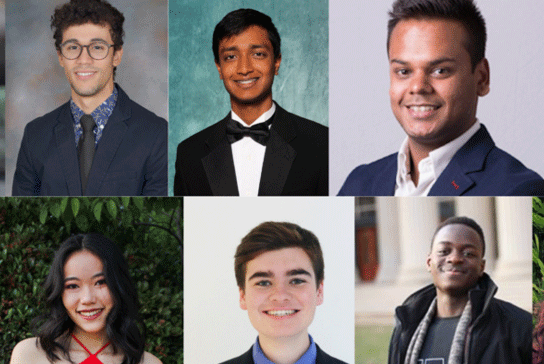 |
In the NewsNovember 4, 2021Networking on a global scaleMISTIMIT NewsMISTI Career Conversations virtual lunch series sees MIT students explore environmental, social, and governance initiatives in a global context across three key sectors. |
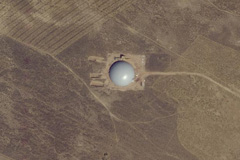 |
In the NewsNovember 2, 2021Satellite images appear to show China is making significant progress developing missile silos that could eventually launch nuclear weaponsKylie Atwood and Jennifer HanslerCNNQuoted:"China may fill these out eventually but in the interim, when they are not all filled out, would the US be able to distinguish with certainty which silos are filled and which aren't and would we have to commit to destroying all of these no matter what? If that is the case then the US has to commit maybe twice the number of warheads to all of the silos," said Vipin Narang, a professor of political science focusing on nuclear proliferation and strategy at MIT. "If you are the US this forces you to re-think nuclear planning," he said. |
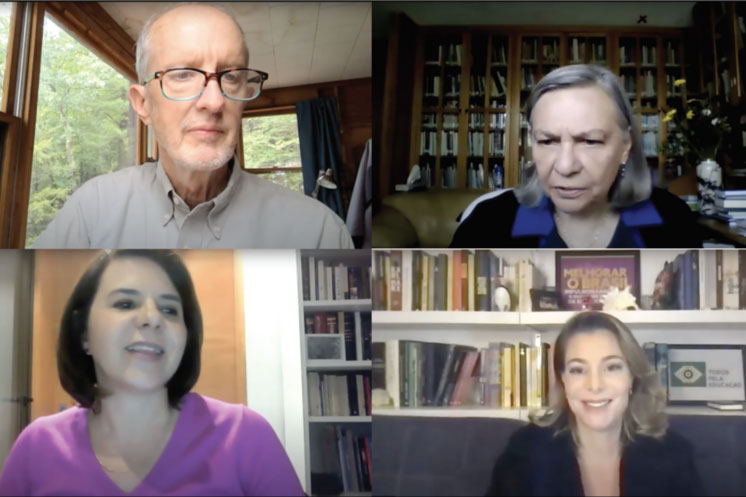 |
In the NewsOctober 29, 2021Education in Latin America after the pandemicBrigid McMahanMIT NewsIn early 2020, Covid-19 forced countries across Latin America to take measures to keep children, young people, and adults away from schools. Many countries have declared educational quarantines as part of efforts to stop the pandemic, but more than a year-and-a-half later, governments are already thinking, what is next?
|
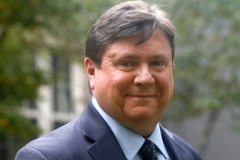 |
In the NewsOctober 28, 2021US general says China's hypersonic missile test is 'close' to a Sputnik momentWBUR Here and NowHere & Now security analyst and MIT Security Studies expert Jim Walsh joins host Scott Tong to discuss how the US views China's reported test of a hypersonic missile last summer. In an interview on Wednesday, Chairman of the Joint Chiefs of Staff Mark Milley called it a "very concerning" development. |
 |
In the NewsOctober 26, 2021Dragging your feet? Lack of sleep affects your walk, new study findsJennifer ChuMIT NewsGood sleep can be hard to come by. But a new study, funded in part by a grant from the MIT Brazil Program, finds that if you can make up for lost sleep, even for just a few weekend hours, the extra zzz’s could help reduce fatigue-induced clumsiness, at least in how you walk. |
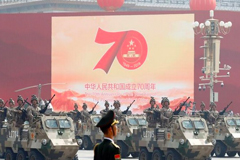 |
In the NewsOctober 25, 2021China amps ups military pressure, but victory is not assuredANIAsian News International (ANI)Quoted: Vipin Narang, the Frank Stanton Professor of Nuclear Security and Political Science at MIT, offered some thoughts: "At some point in the past several years, China woke up and decided it needed to compete with the US on nuclear weapons in ways it hadn't for decades previously. It is investing in a lot more survivability and a lot more penetrability." Narang offered this conclusion: "I doubt it is because China seeks to conduct a bolt-out-of-the-blue first strike against the US." He said that would amount to suicide because of the USA's fleet of nuclear-powered ballistic-missile submarines. "Instead I lean toward another hypothesis: China estimates that the risk of a conventional war with the US is higher now than ever, and it needs to stalemate the US at the nuclear level - escape US nuclear coercion - in order to open space for more aggressive conventional options." He added, "So the take-home risk with all these developments isn't the risk of nuclear war with China - though that obviously goes up - but the risk of a really nasty conventional war where China unloads its massive arsenal of conventional missiles in theater without fear of US nuclear escalation. This isn't a new logic. This is, in fact, exactly the stability-instability paradox. China is seeking to shore up its side of strategic stability in order to potentially open up greater offensive options at the conventional level, in a war it starts or one that comes to it." |
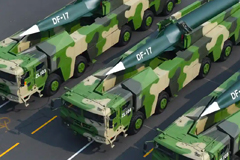 |
In the NewsOctober 22, 2021China’s hypersonic glider weapons test threatens to drive new arms raceJulian BorgerThe GuardianQuoted: “In the last couple years China woke up and realized the risk of a conventional war with the US was higher than it’s probably been since the 1950s or 60s, and the US had a massive nuclear advantage it can use to prevent China from conventionally escalating a conflict,” said Vipin Narang, a professor of political science and expert on proliferation at MIT. “China realised it needed to compete with the US in order to stalemate us at the strategic nuclear level, to have a capability that could give the US pause before the US used nuclear weapons first in a conventional conflict.”...“It empowers those who are looking for continuity and/or expansion of missile defence or nuclear forces,” Narang said. “It’s hard to make the argument, when Russia and China are expanding, that the US should roll anything back.” |
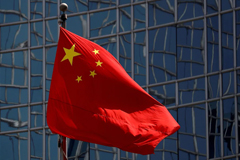 |
In the NewsOctober 19, 2021China’s test of hypersonic vehicle is part of a program to rapidly expand strategic and nuclear systemsEllen NakashimaThe Washington PostQuoted: The big takeaway, said M Taylor Fravel, director of the Security Studies Program at the Massachusetts Institute of Technology, is US-China dialogue about strategic stability “is incredibly urgent.” Developments are accelerating rapidly, he said, and “there just isn’t much communication about them between the US and China.” |
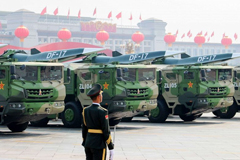 |
In the NewsOctober 19, 2021China's reported hypersonic weapon test raises security concernsLuis MartinezABC NewsQuoted: Taylor Fravel, the Director of the Security Studies Program at MIT, acknowledges that the new Chinese capability "does expose the limits of the US missile defense system" designed to counter ballistic missiles from North Korea and Iran," but he does not see a new Chinese glide vehicle as destabilizing. "Given the continued large gap in warhead stockpiles, whereby China possess only a fraction of those of the US this particular test should not upset the US-China nuclear balance or be destabilizing in that way," he told ABC News. "However, it underscores China’s determination to strengthen its deterrent, especially as amid the steep decline in US-China relations and long-standing concerns about missile defense," he added. |
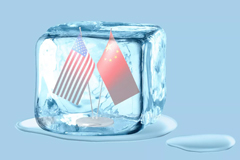 |
In the NewsOctober 19, 2021The new cold war panicBethany Allen-Ebrahimian, Zachary BasuAxiosQuoted: "The most important element of [US-China] competition globally is economics and economic capabilities, and not military power and military capabilities, which makes it different from the Cold War," M Taylor Fravel, a professor of political science at MIT, told Axios. |
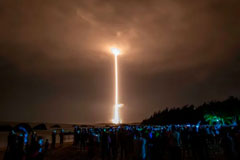 |
In the NewsOctober 16, 2021China tests new space capability with hypersonic missileDemetri Sevastopulo and Kathrin HilleFinancial TimesQuoted: Taylor Fravel, an expert on Chinese nuclear weapons policy who was unaware of the test, said a hypersonic glide vehicle armed with a nuclear warhead could help China “negate” US missile defence systems which are designed to destroy incoming ballistic missiles. “Hypersonic glide vehicles . . . fly at lower trajectories and can manoeuvre in flight, which makes them hard to track and destroy,” said Fravel, a professor at MIT. Fravel added that it would be “destabilising” if China fully developed and deployed such a weapon, but he cautioned that a test did not necessarily mean that Beijing would deploy the capability. |
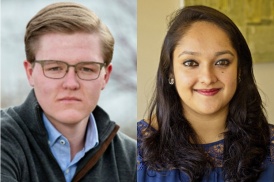 |
In the NewsOctober 14, 2021Apekshya Prasai and Aidan Milliff awarded USIP dissertation fellowshipsUSIPThe US Institute of Peace is pleased to announce the 2021-22 Peace Scholar Fellows. This year 115 applicants from 88 US universities applied for this prestigious award. The 18 award recipients demonstrated the greatest potential to advance the peacebuilding field and the strongest likelihood to inform policy and practice. Congratulations to Apakshya Prasai and Aidan Milliff for being among this cohort! |
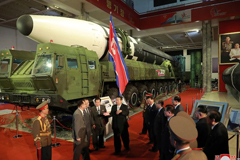 |
In the NewsOctober 11, 2021At exhibition showing off nuclear arms, N Korea displays apparent new weaponMichelle Ye Hee LeeThe Washington PostQuoted: Vipin Narang, a nuclear security expert at MIT, said the missile had a similar look to the Chinese hypersonic glider, the DF-17. “It’s very hard to tell publicly if the hypersonic missile is legit or how it performs. The intelligence community would have likely tried to characterize the [hypersonic glide vehicle] when it was tested, but the pictures released tonight are what North Korea wants us to see,” Narang said...“More generally, Kim wants to show us that his deterrent is not only ‘complete,’ but that he continues to work on improving survivability and penetrability against both [South Korea] and the US, like ‘normal’ nuclear powers do,” Narang said. |
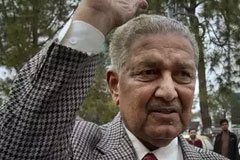 |
In the NewsOctober 10, 2021Thief, traitor, smuggler, scammer: How the west remembers AQ KhanChidanand RajghattaThe Times of IndiaQuoted: "I would submit his greatest accomplishment was in fact convincing everyone that he was actually a nuclear scientist when in fact he was just the world's most dangerous and brazen smuggler," Vipin Narang, Professor of Nuclear Security at MIT observed... |
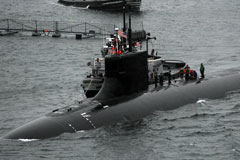 |
In the NewsOctober 8, 2021Here's what we can gather about the US nuclear attack submarine collision in the South China SeaHannah JoseABC NewsQuoted: Vipin Narang, a professor of nuclear security and political science at MIT, says we shouldn't hold our breath when it comes to the USS Connecticut. "It's totally unclear what hit it," he said. When asked about the possibility of it hitting an enemy submarine, he said he doubts we will ever know. "We likely won't know for sure for a while, if ever, on this one," Dr Narang said. "Not sure why we heard about this one — sometimes the damage is extensive enough that it's hard to hide," Dr Narang said. |
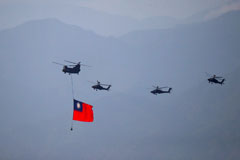 |
In the NewsOctober 6, 2021How close did Chinese warplanes really get to Taiwan?Fred KaplanSlateQuoted: M Taylor Fravel, an expert on China’s military and the director of MIT’s Security Studies Program, said in a phone conversation Tuesday, “These planes are never on a vector to intrude into Taiwan’s airspace.” MIT’s Fravel estimates that, since that trip, Chinese planes have flown over Taiwan’s zone around 20 days each month. They have also flown over Japan’s ADIZ with some regularity. In this sense, as in many others, Beijing is an equal-opportunity exploiter of rivals’ openings. However, Fravel emphasizes, these planes have never flown over Taiwan’s actual airspace. Chinese President Xi Jinping and his generals may be haughty, but they don’t appear to be reckless. |
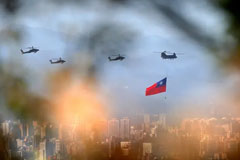 |
In the NewsOctober 5, 2021Taiwan and China: line that Biden must tread is finer than everJulian BorgerThe GuardianQuoted: “It’s absolutely unprecedented in the modern history of these flights that China has run into Taiwan’s Air Defence Identification Zone,” said Taylor Fravel, the director of the security studies programme at MIT. “Each day breaks the preceding record for the total number of flights on a single day.”...“If we were back where we were with Taiwan 10 or 15 years ago with a very sort of active independence-oriented president and that precipitated a conflict across the strait, I’m not sure the United States would necessarily come to Taiwan’s aid in the first instance,” Fravel said. “It would depend on how it played out. But the fundamental US goal is to maintain stability across the strait and to prevent a conflict from occurring.” |
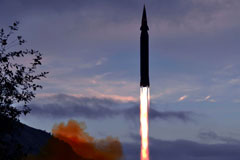 |
In the NewsSeptember 29, 2021North Korea tested a hypersonic missile. Here’s why it mattersWilliam GalloVOAQuoted: That feature may allow it to be attached to much bigger missiles than the KN-23, says Vipin Narang, a nuclear and defense specialist at MIT. “This atop a mobile solid fuel (intercontinental ballistic missile) would pose a big problem for the US — it could be hard to find, and the warhead difficult to intercept by homeland defenses,” Narang told VOA. The development means North Korea would be able to fuel missiles in a factory, seal them hermetically in canisters, and store them so that they can be moved out quickly and launched promptly, Narang says. “They have so many liquid fuel missiles. Now they may not take hours to fuel in the open where they are vulnerable. Big leap in survivability and promptness,” he added. |
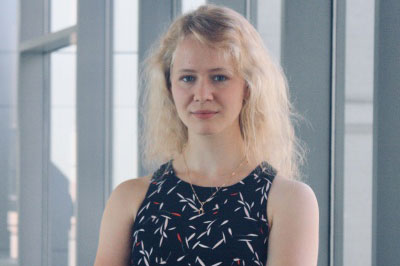 |
In the NewsSeptember 29, 2021Mariya Grinberg seeks clarity in jargonChristopher BurnsSecurity Studies ProgramMariya Grinberg aims to create clear definitions within IR theory, and to ensure definition is understood within different contexts. In her most recent project, she’s focused on the field’s shared understanding of “decline” in the context of nation-states. |
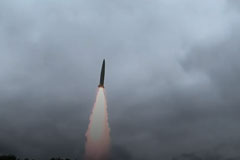 |
In the NewsSeptember 28, 2021North Korea fires short-range missile eastward into sea, South Korean military saysMichelle Ye Hee Lee and Andrew JeongThe Washington PostQuoted: The September tests “are consistent with what we would expect for a maturing nuclear power seeking survivability and penetrability,” said Vipin Narang, a nuclear security expert at the Massachusetts Institute of Technology. |
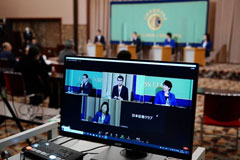 |
In the NewsSeptember 28, 2021Why the governing party election is the main event in JapanMotoko RichThe New York TimesQuoted: Independents don’t see much point in voting. “They’re not going to be mobilized if the opposition doesn’t have something to offer them,” said Richard Samuels, a Japan specialist who directs the Center for International Studies at the Massachusetts Institute of Technology. |
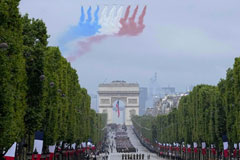 |
In the NewsSeptember 22, 2021France, striving for global power, still struggles to get itMax FisherThe New York TimesQuoted: “That independent streak, the Gaullist streak that has led to nuclear weapons independence, is true in the commercial realm, also,” said Vipin Narang, an MIT political scientist. “Their fingerprints were all over every country of concern during the Cold War,” he added, referring to new nuclear states like Israel and India. “The French have been ruthless in their arms dealings in the past,” Mr Narang said. While he understood Paris’s rage, he added, “When somebody else plays this same game, the French get upset.” |
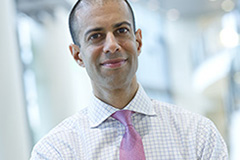 |
In the NewsSeptember 21, 2021A nuclear threat from the Taliban?ThirteenVipin Narang discusses the global buildup of nuclear weapons and legacy of mutual assured destruction. |
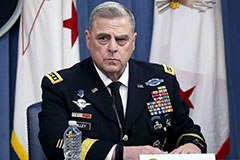 |
In the NewsSeptember 17, 2021Gen Mark Milley faces criticism, support over call to Chinese counterpartWBUR Here and NowThere's support from the White House and criticism from Congress for Genernal Mark Milley, the chairman of the Joint Chiefs of Staff, over his phone call to his Chinese counterpart to avoid a possible conflict last year. Here & Now's security analyst Jim Walsh explains what these newly released details could mean for US national security. Walsh is a senior research associate at the MIT Security Studies Program.
|
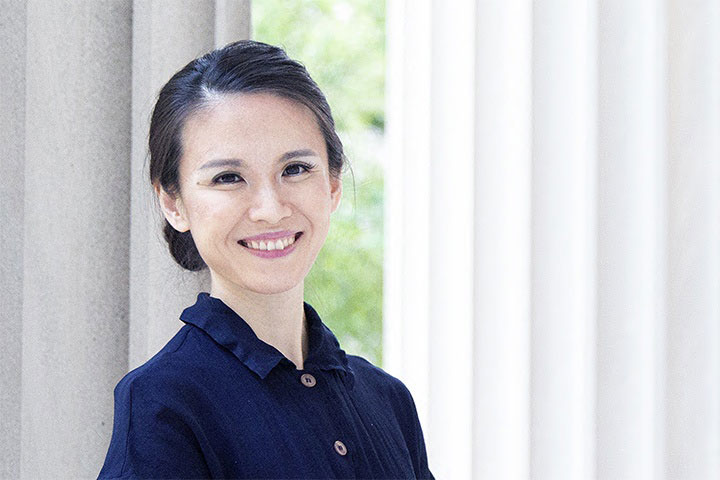 |
In the NewsSeptember 17, 2021Data flow’s decisive role on the global stageNew research by political science doctoral candidate Meicen Sun illuminates the broad economic and political impacts of internet restrictions |
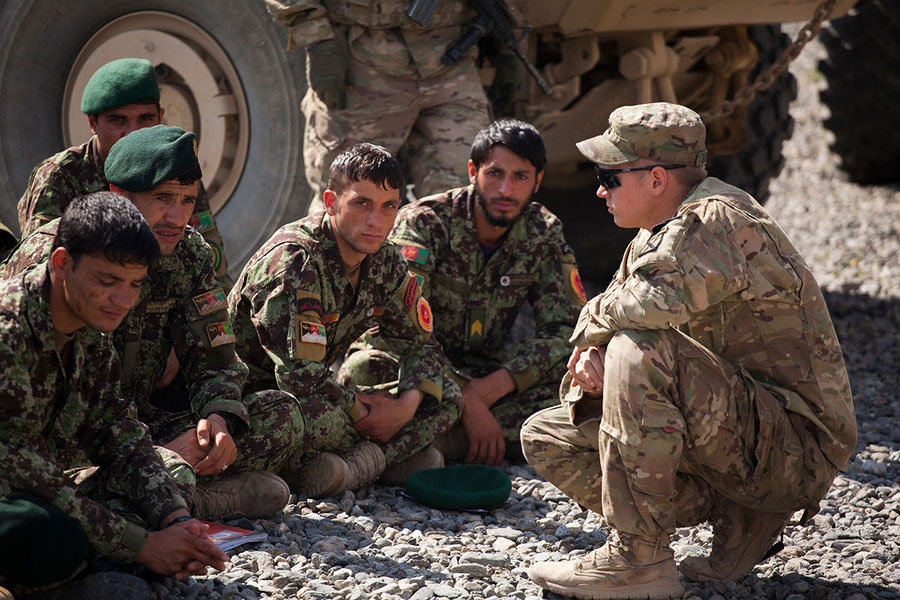 |
In the NewsSeptember 16, 2021What’s the next chapter in Afghanistan?Peter DizikesMIT NewsAfter nearly 20 years, the US has withdrawn its troops from Afghanistan, and the Taliban has regained control over the country. In light of those developments, a panel of foreign-policy experts on Tuesday addressed two separate but related questions: Why did the US military action in Afghanistan fall short, and what comes next for the strife-ridden country? |
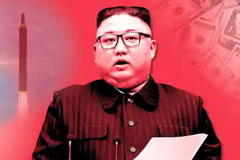 |
In the NewsSeptember 15, 2021Kim Jong Un’s North Korea nuclear weapons development puts Biden to the testEdward White and Kana Inagaki The Financial TimesQuoted: Vipin Narang, a nuclear policy expert at MIT, said as North Korea “matures as a nuclear weapons power it is likely seeking to develop capabilities that all ‘normal’ nuclear powers seek to augment”. That includes boosting their “survivability” against the US by improving their diversity and quantity of weapons, and adding more mobility, including sea-based capabilities, he said. |
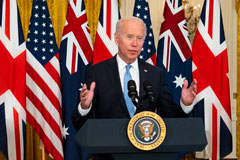 |
In the NewsSeptember 15, 2021Biden announces defense deal With Australia in a bid to counter ChinaDavid E Sanger and Zolan Kanno-YoungsThe New York TimesQuoted: “Attack submarines are big deal, and they send a big message,” said Vipin Narang. “This would be hard to imagine five years ago, and it would have been impossible 10 years ago. And that says a lot about China’s behavior in the region.” “There will be many who say we are giving the Australians a gateway drug for a nuclear capability,’’ Mr Narang said. “It is not something we would let other major allies get away with, much less help make it possible.” |
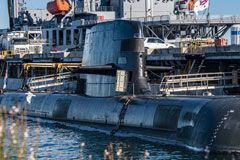 |
In the NewsSeptember 15, 2021Australia will get nuclear-powered subs in new partnership with US, UKJacqueline FeldscherDefense OneQuoted: Vipin Narang, a professor of nuclear security and political science at MIT, argued that, because Australia is so far south with so much ocean to patrol, the benefits of the increased range offered by a nuclear-powered submarine outweigh the potential risks, “If there’s any country I trust, it’s really Australia,” Narang said. “I know there are proliferation risks, but to me they’re offset by the warm fuzzy feeling I get from Australia having SSNs to help us out.” |
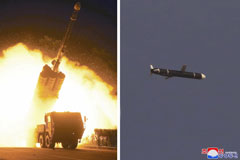 |
In the NewsSeptember 13, 2021North Korea tests new long-range cruise missiles that puts Japan in striking distanceJesse JohnsonThe Japan TimesQuoted: Vipin Narang, an MIT professor who specializes in nuclear strategy, said the development of the long-range cruise missile was “definitely a problem for Japan.” “They can fly low and maneuver and can be very difficult to intercept by air and missile defenses,” Narang said. |
 |
In the NewsSeptember 9, 2021Reflecting on September 11, 20 years laterMIT NewsRobert E Wilhelm Fellow Steven Simon, an expert on US strategy and the war on terror, weighs in on 9/11 and where we can go from here. |
 |
In the NewsSeptember 9, 2021Talk of a nuclear deterrent in South KoreaMorten Soendergaard LarsenForeign PolicyQuoted: South Korea “is the only country to develop SLBMs without first developing nuclear weapons, so it makes one wonder,” said Vipin Narang, a professor of nuclear security and political science at MIT. “Even with a heavy conventional warhead or multiple warheads on each SLBM, does six tubes on a submarine really provide a credible conventional retaliatory capability if all of South Korea’s land-based missiles were wiped out?” Narang asked. |
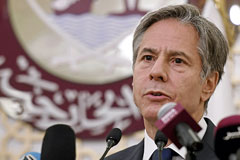 |
In the NewsSeptember 7, 2021The dangerous confusion over Mazar-i-SharifAlexander Ward and Quint ForgeyPoliticoQuoted: The reason Seoul wants such a capability is to deter potential attacks from Pyongyang, or at least to have the ability to strike North Korea from a hard-to-track submarine, experts say. “A conventional SLBM is crazy expensive but may have a logic (survivable large conventional second strike etc). This is just about the uniqueness of that possibility,” tweeted Vipin Narang, a nuclear expert at MIT. |
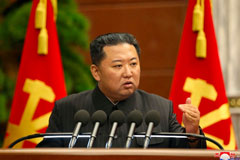 |
In the NewsSeptember 3, 2021North Korea has entered the chatJonathan Custodio and Alexander WardPoliticoQuoted: “In the short term, there are meaningful gains to be had by sort of slowing down the growth of the program. And Yongbyon gives you an opportunity to do that,” said Vipin Narang, a nuclear expert at MIT, noting the nuclear reactor site is North Korea’s only known plutonium and tritium production path. “I think the question for the Biden administration or any administration going forward … is whether we can get Yongbyon, the whole complex, back on the table.” |
 |
In the NewsSeptember 2, 20219/11, 20 years later: did the tragedy give US-China relations a respite?Mark MagnierSouth China Morning PostQuoted: “9/11 was a strategic gift,” said M Taylor Fravel, strategic studies director at MIT...“In this country, there is great debate going forward that’s still unsettled on what the future relationship should look like,” said Fravel, even as the two nations’ size and global importance suggests they’ll need to find common ground. “Breaking up is hard to do.” |
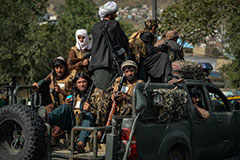 |
In the NewsAugust 31, 2021America's longest war is over. What did the US gain from 20 years in Afghanistan?WBUR Here & NowHere & Now security analyst Jim Walsh joins host Scott Tong to discuss what 20 years of war in Afghanistan accomplished as the last US troops leave Kabul airport. |
 |
In the NewsAugust 29, 2021The impact of Covid-19 on China’s military: A conversation with Taylor FravelBonny LinCenter for Strategic and International StudiesIn this episode of the ChinaPower Podcast, Taylor Fravel discusses whether China has become more militarily assertive toward its neighbors during the pandemic. He argues that, although some expected the People’s Liberation Army (PLA) to halt or reduce its activity during the Covid-19 pandemic, the level of Chinese assertiveness seen prior to the pandemic has continued during the pandemic. |
 |
In the NewsAugust 23, 2021Twenty years after 9/11, are we any smarter?Jordan Michael SmithNew RepublicQuoted: “It’s an important moment when one significant power is passing or catching up in overall capabilities with another significant power,” said MIT’s Barry Posen, a leading advocate of a foreign policy forefronting restraint... “This requires a kind of subtle foreign and defense policy, and that’s not our strong suit,” he said... “Foreign policy should be about interests, not vacuums,” “If your interests don’t lie in a place, why do you care?” |
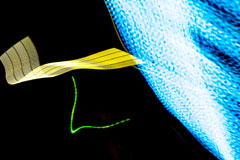 |
In the NewsAugust 22, 2021Could cyberwar make the world safer?Cybèle C GreenbergThe New York TimesQuoted: Cyberattacks have helped nations achieve nuclear nonproliferation in a way that, in the past, would have required physical force and increased risk to personnel, said Vipin Narang, a Massachusetts Institute of Technology professor who specializes in nuclear strategy. |
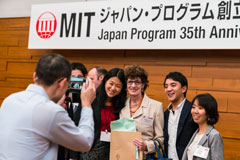 |
In the NewsAugust 19, 2021MIT-Japan Program establishes the Patricia Gercik Memorial FundMIT NewsThe endowed fund will provide supplemental stipends to students seeking internships in Japan. Gercik served as managing director of the MIT-Japan Program for almost three decades and introduced hundreds of MIT students to Japanese culture, history, and in-country internship experiences. |
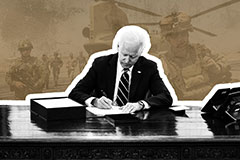 |
In the NewsAugust 17, 2021The end of America's post-9/11 delusionDavid FarisThe WeekBarry Posen referenced and quoted: From the wreckage of this embarrassing and enormously consequential 20-year-long failure must emerge a new foreign policy doctrine based on American interests and not American mythology. This doctrine, what the grand strategy theorist Barry Posen calls "restraint" is based, as he argues, on the idea that "the United States is quite secure, due to its great power, its weak and agreeable neighbors, and its vast distance from most of the world's trouble, distances patrolled by the U.S. Navy."
|
 |
In the NewsAugust 10, 2021North Korea threatens to boost nuclear program ahead of drills between US and ‘perfidious’ SouthMin Joo Kim and Simon DenyerThe Washington PostQuoted: “I would likely interpret it — in the broader context — to be the overall nuclear deterrent and posture,” said Vipin Narang, an MIT professor who specializes in nuclear strategy. Pyongyang last carried out a nuclear test in 2017, but it has tested ballistic missiles as recently as March. |
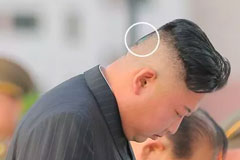 |
In the NewsAugust 3, 2021Kim Jong-un health fears: Mystery spot and bandage appear on back of NK leader's headSteven BrownExpressQuoted: Vipin Narang, an associate professor of political science at MIT, added that "if [the sudden weight loss] is due to a health condition though, the jockeying for his succession may already be happening behind the scenes, and that volatility could be trouble for the outside world" if he were to pass away. |
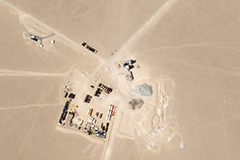 |
In the NewsJuly 28, 2021A 2nd new nuclear missile base for China, and many questions about strategyThe New York TimesQuoted: “Just because you build the silos doesn’t mean you have to fill them all with missiles," said Vipin Narang. "They can move them around.” |
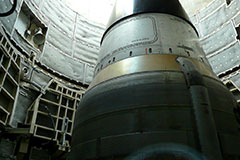 |
In the NewsJuly 12, 2021China is building over 100 missile silos in the desert—Is it playing a nuclear “shell game”?Sebastien RoblinNational InterestQuoted: Vipin Narang's comments on Twitter were referenced in this article, including: “China seeking survivability to try to escape the pressure of America's first strike advantage is unsurprising and unalarming… We pursue counterforce and Ballistic Missile Defense precisely to put pressure on our adversaries, but some then somehow act surprised when Moscow, Beijing, and Pyongyang take the bait. Using their reaction to justify even more buildup is just a recipe for the spiral model, on your dime." |
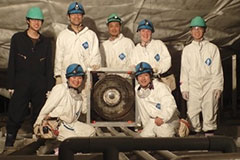 |
In the NewsJuly 8, 2021Global collaboration surges post-pandemicMIT NewsMIT is a focal point for the type of collaborative problem-solving that makes an impact around the world ... This “MIT mindset,” however, is not just limited to campus, as evidenced by the plethora of faculty collaboration with institutions across the globe, and MIT International Science and Technology Initiatives (MISTI) continues to make many of these research partnerships possible. |
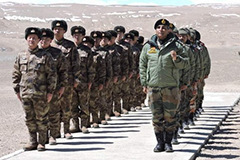 |
In the NewsJune 22, 2021Alas and a LAC - The Sino-Indian border a year onSifyQuoted: Taylor Fravel commented on the PLA's eventual pullback: "China appears to have calculated that the political costs of a long-term military standoff with India had now become too high. As I show in recent testimony, China's assessment of its international environment now emphasizes what Xi Jinping describes as 'profound changes unseen in a century' that are associated with power shifts, rapid technological change, decaying global governance and populism. Although this assessment sees a favorable 'rising East, declining West,' it also highlights greater uncertainty and sources of instability that China must navigate to achieve its ambitious economic goals. Stabilized relations with India will help China achieve these goals, whereas continued militarized confrontation would not." |
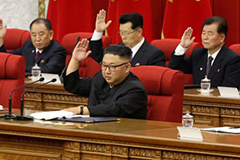 |
In the NewsJune 20, 2021N Korea’s Kim says to prepare for ‘both dialogue and confrontation’ with USReutersQuoted: Kim’s comments continue a “wait and see” policy, while refraining from provoking the Biden administration, said Vipin Narang, a nuclear affairs expert at the Massachusetts Institute of Technology in the United States. "It seems to suggest that Pyongyang thinks the ball is in the U.S. court at the moment, and it is waiting to see how the Biden administration outreach goes,” he said. “Given reports of North Korea’s food and COVID-19 situation, one presumes that Kim is also happy to avoid a near-term confrontation.” |
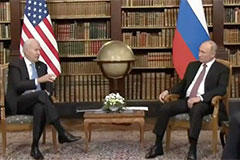 |
In the NewsJune 18, 2021What's next after the Biden-Putin summit?NECNSue O’Connell sat down with Carol Saivetz, senior advisor for the Security Studies Program at MIT, to discuss the biggest takeaways from the Biden-Putin summit and what we can expect going forward. |
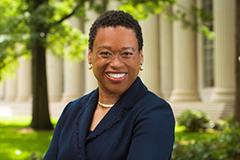 |
In the NewsJune 17, 2021Melissa Nobles named MIT’s next chancellorMIT has announced that its next chancellor will be Melissa Nobles, an accomplished scholar who has led the School of Humanities, Arts, and Social Sciences since 2015. “Human societies face very serious challenges, and the world’s issues seem quite immediate and pressing, sitting here at our doorstep,” says Nobles, who is the Kenin Sahin Dean of the School of Humanities, Arts, and Social Sciences (SHASS) and a professor of political science. “Our responsibility to educate our students in order to face these challenges is more important than ever..." |
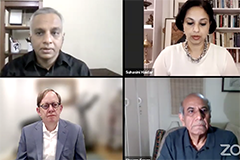 |
In the NewsJune 17, 2021One year after Galwan: The road ahead for Sino India RelationsCentre for Policy ResearchOn Thursday, June 17, the Centre for Policy Research featured an event with Taylor Fravel as a panelist to discuss the future of Sino-India relations. The event is archived and available on FaceBook. |
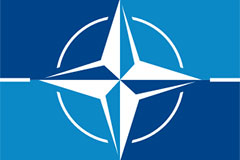 |
In the NewsJune 15, 2021For the first time, NATO is focusing on ChinaThe WorldBoth the Trump and the Biden administrations have described China as an adversary, a rival, even a threat. China has been front and center when it comes to Biden's foreign policy agenda. Now, the NATO alliance is also zeroing in on China with laserlike focus. In a statement coming out of the NATO summit, allies stated that China's behavior presents: "systemic challenges to the rules-based international order." Host Marco Werman speaks with Taylor Fravel. |
 |
In the NewsJune 14, 2021Lin-Greenberg among six SHASS educators to receive 2021 Levitan Teaching AwardSix individuals have received the James a and Ruth Levitan Teaching Award for 2021. The award, given annually by the MIT School of Humanities, Arts, and Social Sciences (SHASS), honors superlative teachers across the school, who have been nominated by MIT students themselves. |
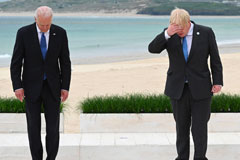 |
In the NewsJune 13, 2021Biden’s Europe trip is an end, not a new beginningMax HastingsBloombergQuoted: Posen argued in a recent paper that even if the US withdrew militarily from Europe, the European NATO allies are capable of defending themselves against Russian aggression. |
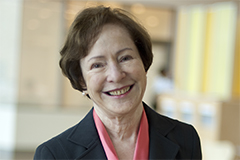 |
In the NewsJune 11, 2021Q&A: The missing piece of the puzzle in manufacturingThe US Innovation and Competition Act, which sailed through the Senate on Tuesday [June 8, 2021], seeks to strengthen cutting-edge American technologies, manufacturing, and—the reason for this rare bipartisan enthusiasm—competitiveness against China. |
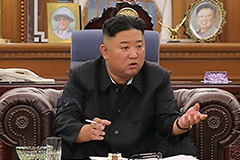 |
In the NewsJune 10, 2021Kim Jong Un’s apparent weight loss sparks speculation over healthNew York PostQuoted: “If he lost the weight intentionally for health reasons, that "likely improves his position at home," said Vipin Narang … “If [the sudden weight loss] is due to a health condition though, the jockeying for his succession may already be happening behind the scenes, and that volatility could be trouble for the outside world" if he were to die suddenly, Narang said. |
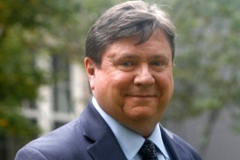 |
In the NewsMay 27, 2021Kim Jong Un tries to fortify power In North KoreaNPRNorth Korean leader Kim Jong Un has vowed an “uncompromising struggle” against anti-socialist elements at home, according to state media reports. It’s seen as a move to fortify his power amid pandemic-related difficulties and US-led economic sanctions.Host Tonya Mosley talks with Here & Now’s security analyst Jim Walsh. |
 |
In the NewsMay 24, 2021As Israel’s dependence on US shrinks, so does US leverageVipin Narang quoted: “We’re seeing much more Israeli independence,” said Vipin Narang, who has studied Israeli strategy. “If you had told me five years ago that the Israelis would have a layered missile defense system against short-range rockets and short-range ballistic missiles, and it was going to be 90 percent effective, I would have said, ‘I would love what you’re smoking.’” |
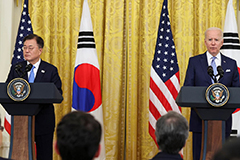 |
In the NewsMay 22, 2021The Heat: US-ROK relations and global health summitCGTNPresident Moon Jae-in of the Republic of Korea met with US President Joe Biden on Friday, May 21. The two leaders discussed a wide array of issues, including vaccine cooperation, climate change and security of the Korean Peninsula. Jim Walsh provides commentary. |
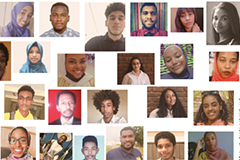 |
In the NewsMay 17, 2021Ice melts on US-Sudan relations, providing new opportunitiesMIT NewsAn MIT-led workshop connecting young leaders in the US and Sudan received hundreds of applications from high school and college students eager to take part. Members of the ZAHARA for Education group selected their first cohort of 50 students. |
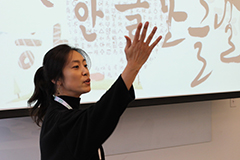 |
In the NewsMay 17, 2021Global Languages announces new HASS concentration in KoreanMIT NewsStudents at MIT will now be able to take their Humanities, Arts, and Social Sciences concentration in Korean. The new concentration extends the options for Asian languages at MIT, which also include Japanese and Mandarin. |
 |
In the NewsMay 10, 2021Study reveals mixed reactions about Covid-19 health disparitiesPeter DizikesMIT NewsThe Covid-19 pandemic, like many other health crises, has had unequal effects on the US population, with communities of color often hit the hardest. A new study co-authored by Evan Lieberman identifies a related challenge: Different social groups have different reactions to the fact that Covid-19 has generated those health inequities. |
 |
In the NewsMay 4, 2021India-China border row: India continues to upgrade border infrastructure as Chinese PLA looks to pre-empt IndiaEurasian Press DeskThe Eurasian TimesTaylor Fravel cited and quoted: Taylor Fravel, professor of International Relations at MIT and author of two major books on China’s territorial disputes and its military strategy, “The simplest explanation perhaps is that China is responding to India’s efforts to bolster border-area infrastructure in Ladakh after the completion of the Darbuk-Shyok-DBO (DSDBO) road. |
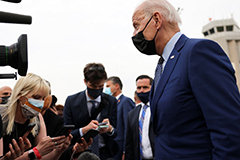 |
In the NewsMay 2, 2021Four pivots Joe Biden should make with RussiaBonnie KristianNational InterestQuoted: Vital interests affect the safety, sovereignty, territorial integrity, and power position of the United States, as MIT’s Barry Posen has explained. If, in a worst-case scenario, all of Ukraine were to “fall” to Russia, then it would have little impact on the security of the United States. |
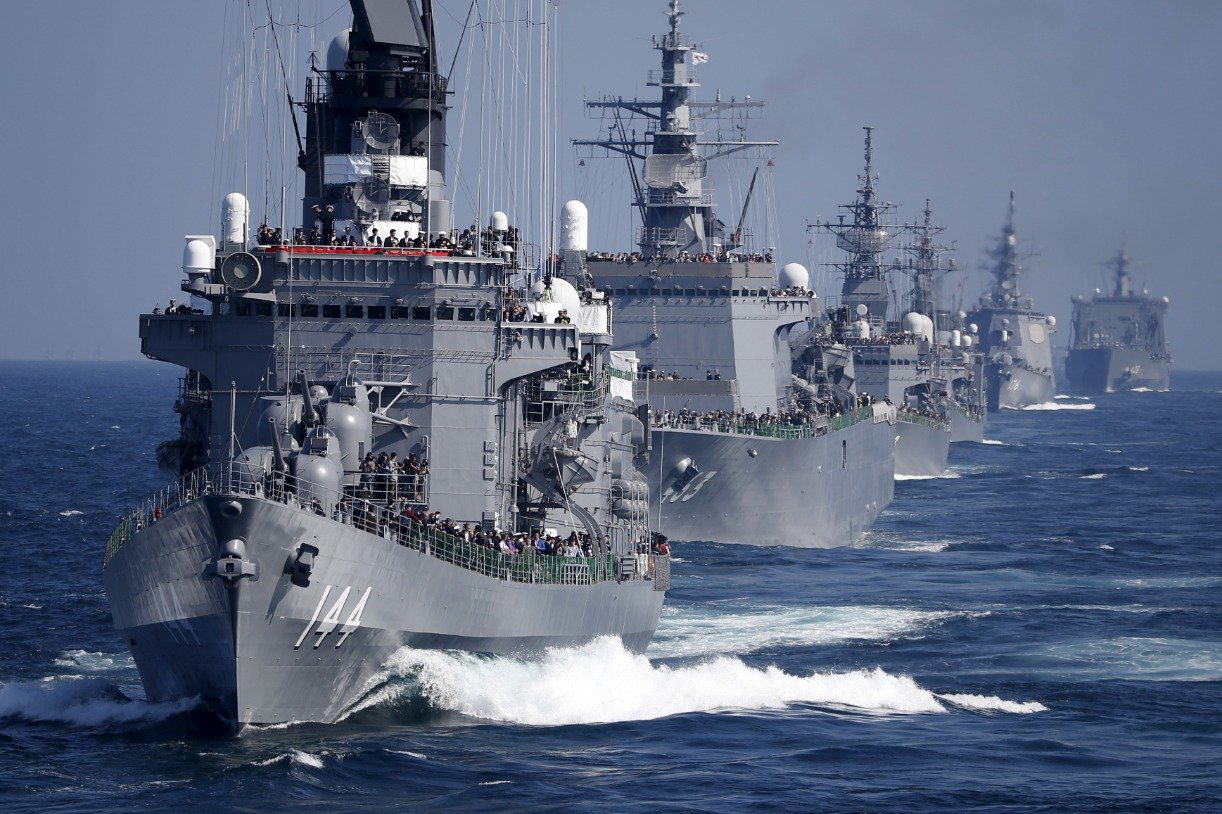 |
In the NewsMay 1, 2021Is the US-Japan alliance still the ‘cornerstone’ of stability in Asia?Quoted: Richard Samuels and Eric Heginbotham observe that “[t]he overwhelming bulk of Japan’s defense budget remains committed to capabilities consistent with a forward defense strategy.” These are maneuver forces with inherently offensive characteristics. |
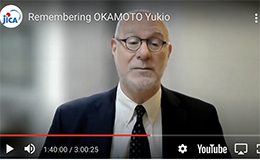 |
In the NewsApril 30, 2021Remembering Yukio OkamotoA tribute to Yukio Okamoto, a Japanese diplomat who also served as both a Robert E Wilhelm Fellow and a research fellow at CIS. This month marks the first anniversary of his death. JICAChannel02 & Okamoto Associates, Inc. (OAI) sponsored the symposium. |
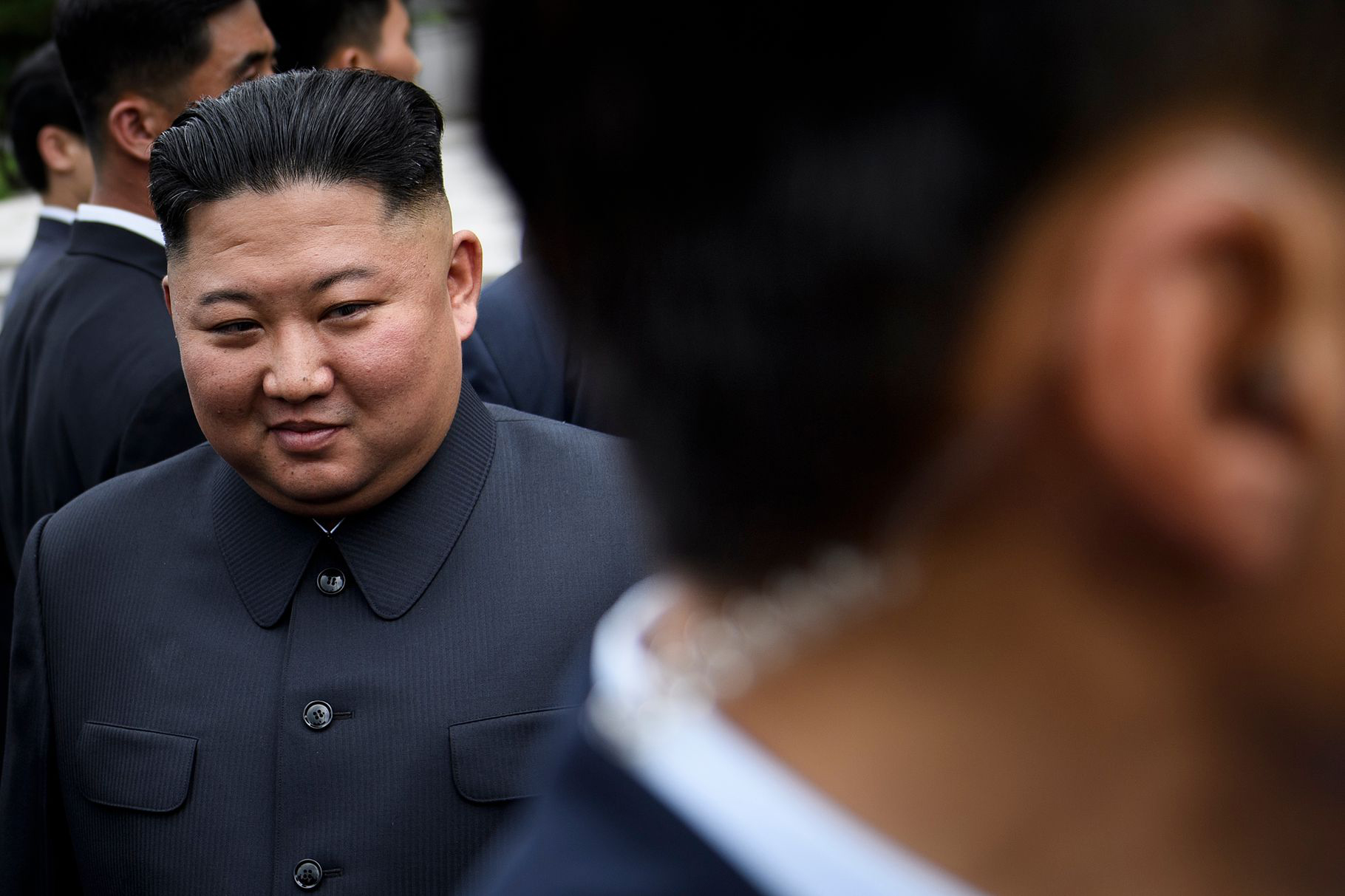 |
In the NewsApril 30, 2021Biden’s new North Korea policy is an extended hand to Kim Jong UnAlex WardVoxQuoted: “It’s the right formulation to use because both sides agreed to it,” said Vipin Narang, an expert on North Korea’s nuclear program at MIT. |
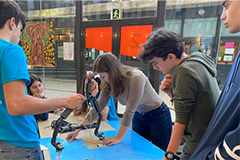 |
In the NewsApril 28, 2021Sparking studies and conversations in SpainBrigid McMahanMIT News“Meeting with the students [virtually] to discuss the challenges I had prepared was so inspiring because I saw the interest in science sparking during our conversations,” reflects Erick Eguia, a junior studying brain and cognitive sciences. Eguia had the unique experience of taking part in a longstanding MIT International Science and Technology Initiatives (MISTI) program in a new way—over Google Classroom to a group of eager students in Spain. |
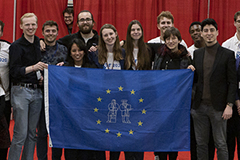 |
In the NewsApril 22, 2021A unique partnership continues to thriveMISTIMIT NewsThis year’s 25th anniversary of the European Career Fair took place online Feb. 25, and MISTI was virtually present to help celebrate. Breaking last year's record with more than 3,900 candidates signed up, ECF 2021 was also the largest single career fair event at MIT during this academic year in terms of attendance. |
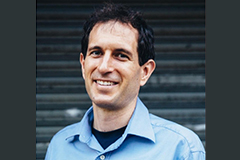 |
In the NewsApril 21, 2021Justin Steil wins Edgerton Faculty AwardMIT NewsJustin Steil, associate professor in the Department of Urban Studies and Planning, has been named a recipient of the 2020-21 Harold E Edgerton Faculty Achievement Award. Steil, a research affiliate at CIS, examines the intersection of urban policy with property, land use, and civil rights law. |
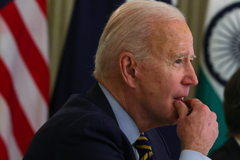 |
In the NewsApril 21, 2021Can the United States work with India to counter China?Emily TamkinNewStatesmanVipin Narang quoted: And on a practical level, “You can’t unwind trillions of dollars of front-line equipment that come from Russia,” said Vipin Narang. “You need spare parts for that, you need maintenance for that.”...“For Biden, it’s not a winning hand, especially for Democrats in Congress, to paint it as an alliance of democracies,” Narang said. “If this is about China, let’s just say it’s about China.” |
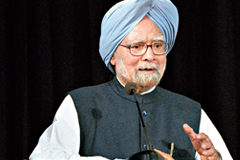 |
In the NewsApril 20, 2021Covid-19: All-adult vaccine ploy on day of ingratitudeGS Mudur, JP Yadav The TelegraphVipin Narang quoted: “India doesn’t have nearly enough supply to vaccinate everyone over 18 starting 5/1, especially since those approved are double dose. GoI knows this. So it buckpasses to states, rich ones will hoard, poor ones will die. And Modi will wash his hands of a colossal federal failure,” MIT associate professor Vipin Narang tweeted. |
 |
In the NewsApril 18, 2021Covid-19 disparities and policy preferencesNPRNPR's Michel Martin speaks with professor Evan Lieberman about the study he co-authored looking at how sharing information about the pandemic's racial disparities affect peoples' policy opinions. |
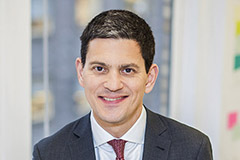 |
In the NewsApril 15, 2021Miliband receives the Robert A Muh Alumni AwardSHASSRt Hon David W Miliband SM ’90, president and CEO of the International Rescue Committee (IRC), has been recognized with the 2021 Robert A Muh Alumni Award. The biennial award recognizes the tremendous achievements of MIT degree holders who are leaders in one of the Institute’s humanities, arts, and social science fields. Miliband is being recognized for his long and distinguished political career in the United Kingdom and his leadership in addressing the global refugee crisis. He earned an SM in political science at MIT as a Kennedy Scholar and more recently served as a Robert E Wilheim Fellow at the MIT Center for International Studies. |
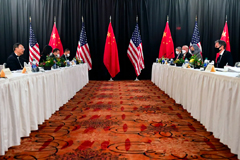 |
In the NewsApril 14, 2021Sought-after ambassador posts unfilled under Biden. Will they go to political allies or veteran diplomats?Deirdre Shesgreen and Courtney SubramanianUSA TodayM Taylor Fravel quoted: M Taylor Fravel, an expert on China with MIT's security studies program, said the Biden administration may have good reason to hold off on its ambassadorial nominations, noting the wide range of legislative priorities the White House is juggling. “It's America's most consequential diplomatic relationship at the moment, without a doubt,” Fravel said. “If you get China wrong, you get many other things wrong. If you get China right, you solve a lot of other problems.” |
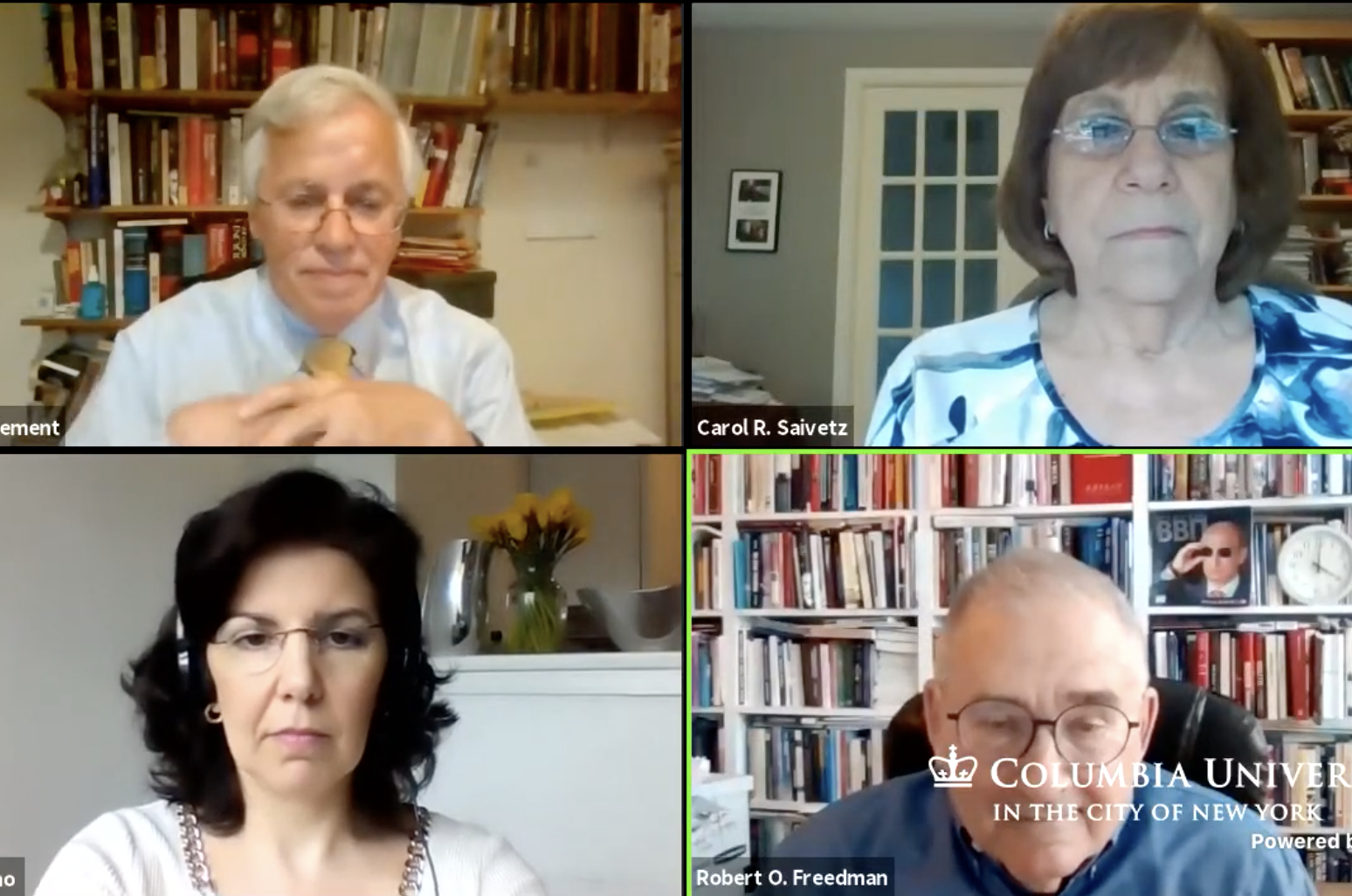 |
In the NewsApril 14, 2021Russian influence in the Middle East: A new era?The Program on US-Russia Relations at Columbia’s Harriman Institute explored the role of Russia in the Middle East with Peter Clement (Saltzman Institute), Robert O Freedman (Baltimore Hebrew University; Johns Hopkins University), and Carol R Saivetz (MIT; Harvard). The event was moderated by Elise Giuliano (Harriman Institute). |
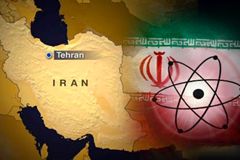 |
In the NewsApril 12, 2021Natanz sidelined by another Israeli attackJames JoynerOutside the BeltwayVipin Narang quoted: MIT’s Vipin Narang thinks otherwise, tweeting “Setting back part of Iran’s nuclear program by nine months but hardening its resolve to potentially reconstitute its nuclear weapons program seems like a bad trade unless you’re supremely confident you can keep sabotaging it indefinitely before a nuke gets out of the barn.” But, honestly, it’s not as if the regime lacked “resolve” previously. |
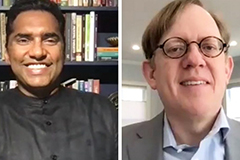 |
In the NewsApril 5, 2021China miscalculated in provoking a standoff with IndiaHappymon JacobThe WireHappymon Jacob interviews Taylor Fravel about China’s military strategy. Fravel unpacks China’s concept of a world class military and provides a rich understanding of its strategy of fighting local informalized wars and situates it within the Chinese grand strategy. |
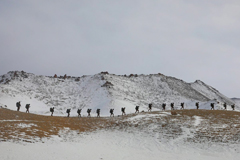 |
In the NewsMarch 29, 2021The mysterious user editing a global open-source map in China’s favorVittoria Elliott and Nilesh ChristopherRest of WorldM Taylor Fravel quoted: Altering OpenStreetMap to advance national interests could be considered an extension of what experts call “cartographic warfare” when countries enforce territorial claims via maps. “In the ’50s and ’60s, China and India were engaged in this and would publish competing maps to bolster the strength of their claims to territory,” said M Taylor Fravel, director of the Security Studies Program at MIT, who has studied China’s borders and territorial disputes. “What we are seeing now in open source I would characterize as the latest manifestation of the ways in which states have sought to advance their claims through maps and mapmaking.” |
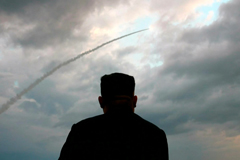 |
In the NewsMarch 28, 2021Loaded language: US denuclearization phrasing puts progress on North Korea in jeopardyJesse JohnsonThe Japan TimesVipin Narang quoted: “The inconsistency is frustrating,” Vipin Narang, a North Korea expert and professor of international relations at MIT, said of the apparent shift in language. “These phrases are not interchangeable, at least as far as Pyongyang is concerned...” “It seems unnecessary to insist on the ‘denuclearization of North Korea’ if it will simply torpedo attempts to jump-start talks,” MIT’s Narang said. “Of course, it’s possible Pyongyang is just using this as an excuse, but it’s an easy excuse for them to use.” |
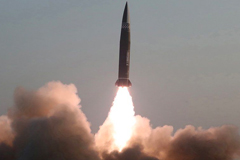 |
In the NewsMarch 26, 2021North Korea claims 'new tactical guided' missiles launchedLaura BickerBBC NewsVipin Narang quoted: Such a new missile would allow North Korea to put heavier nuclear warheads on its rockets, Vipin Narang, a security studies professor at MIT said on Twitter. “I think the story with this KN23 variant is this massive payload upgrade. This gives North Korea the flexibility to use a not-so-compact nuclear warhead on this missile. On @ArmsControlWonk 0 (fart) to 10 (ICBM) scale, I put this test at a solid (fuel) 6. Others may disagree.” |
 |
In the NewsMarch 25, 2021Barry Posen on risking escalation and scrutinizing planCIMSEC discussed the 1980s Maritime Strategy with Professor Barry Posen of MIT, who at the time emerged as a challenger of some of the strategy’s precepts. In this discussion, Posen discusses the possibly escalatory nature of the strategy, the nuclear risks involved, and how operational war plans deserve to be scrutinized by civilian policymakers. This article was first published here. |
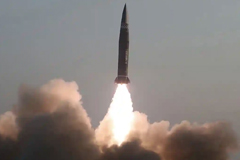 |
In the NewsMarch 25, 2021North Korea claims it tested a new guided missileGuardian staff and agenciesThe GuardianVipin Narang quoted: Vipin Narang of MIT said it appeared to be a weapon that the North displayed at a military parade in January. “A 2.5 ton warhead likely settles the question whether this KN23 variant is nuclear capable. It is,” he tweeted. |
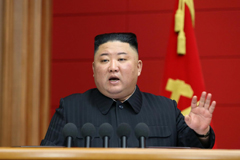 |
In the NewsMarch 24, 2021North Korea missile test casts shadow over Biden administration, Japan OlympicsJosh Smith, Antoni SlodkowskiReutersVipin Narang quoted: Even short-range ballistic missile tests would be a “step up” from the weekend test, and allow North Korea to improve its technology and send a proportionate response to recent US-South Korea military drills, said Vipin Narang, a nuclear affairs expert at MIT. The test launches should not torpedo diplomatic efforts, but they are a reminder of the cost of the failure to secure a deal with Pyongyang, he said. “Every day that passes without a deal that tries to reduce the risks posed by North Korea’s nuclear and missile arsenal is a day that it gets bigger and badder,” Narang said. |
 |
In the NewsMarch 23, 20213 Questions: Artificial intelligence for health care equityMIT Schwarzman College of ComputingMIT NewsRegina Barzilay, Fotini Christia, and Collin Stultz describe how artificial intelligence and machine learning can support fairness, personalization, and inclusiveness in health care. |
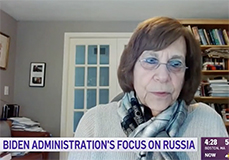 |
In the NewsMarch 23, 2021Biden administration's focus on RussiaNECNSue O’Connell speaks with Carol Saivetz, senior advisor for the Security Studies Program at MIT, about Biden’s focus on Russia. |
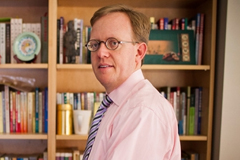 |
In the NewsMarch 19, 2021Officials from the US and China have met for the first time since Biden took officeJohn RuwitchNPRM Taylor Fravel quoted: “On the one hand, I might view it as positive because the US is airing concerns that I, as the ally or partner, share. On the other hand, I might be concerned that this is the sign of a relationship that's going to sort of accelerate in terms of its decline.” |
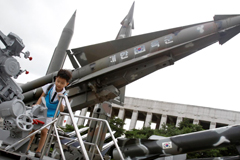 |
In the NewsMarch 18, 2021Analysis: Denuclearisation of what? US switch on North Korea wording raises debateJosh SmithReutersVipin Narang quoted: Implications of unilateral denuclearisation are “a nonstarter for Pyongyang and is unlikely to jumpstart any negotiations,” said Vipin Narang, a nuclear affairs expert at the Massachusetts Institute of Technology in the United States. “The formulation ‘denuclearisation of North Korea’ implies unilateral obligations on North Korea - something it has never agreed to, and neither have we,” he said. |
 |
In the NewsMarch 18, 2021Traveling the world for global health solutionsAfter studying and working on three continents, Andrea Orji, an MIT senior and chemical engineering major, now aspires to become a physician in Nigeria. |
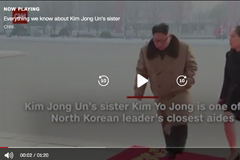 |
In the NewsMarch 15, 2021North Korea breaks silence to warn US against 'causing a stink'Jennifer Hansler, Nicole Gaouette and Kylie AtwoodCNNVipin Narang quoted: “Denuclearization is a non-starter,” said Vipin Narang, an associate professor of political science at MIT, who added that “every time we use that phrase it's a five-yard penalty, because the North Koreans never agreed to it.” Narang said that the Biden officials' insistence on adopting the same emphasis on North Korean denuclearization “likely isn't helping, when you insist on something they've rejected flat out of hand.” |
![Aaron Te Moananua, left, receives a dose of the Pfizer COVID-19 vaccine in Auckland, New Zealand. New Zealand has opened its first large vaccination clinic as it scales up efforts to protect people from the coronavirus. [New Zealand Ministry of Health via AP]](http://cis.mit.edu/sites/default/files/images/News_InTheNews_031421_ManaakitangasRoleInLowDeathRate.jpg) |
In the NewsMarch 14, 2021Manaakitanga’s role in New Zealand's low COVID-19 death rateGeoff JohnsonTimes ColonistChappell Lawson quoted: While most scholars at the event were “reluctant to ascribe outcomes to culture,” said MIT political scientist Chappell Lawson, “during a time of a global public health crisis, it is at least possible to ask how social practices have fed into the varying responses around the world” adding that “the basic question related to culture response is how the habits and mindsets of a group of people affect what people do in the public sphere.” |
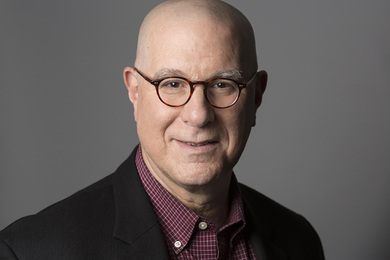 |
In the NewsMarch 10, 20213 Questions: Richard Samuels on Japan’s 3.11 triple disaster and its impact 10 years laterMIT NewsWithin minutes, the earthquake, tsunami, and nuclear meltdown on March 11, 2011, brought an unprecedented wave of death, displacement, and destruction to Japan. Here, Samuels reflects on whether 3.11 was a force of change, or a return to status quo, in Japan’s politics and public policy. |
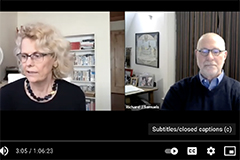 |
In the NewsMarch 10, 2021A conversation about Japanese politics and public policyUC San Diego School of Global Policy and StrategyWhat do the Tohoku earthquake, Japanese intelligence, technology policy and national security policy, and Japan’s energy and regional policies have in common? Richard Samuels shares insights he has gained from this deep and broad research, and what his findings imply for Japan, Japan’s grand strategy, and US-Japan relations today. |
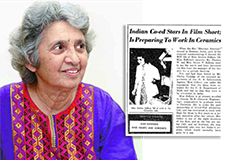 |
In the NewsMarch 10, 2021Exploring generations of influence between South Asia and MITOver Independent Activities Period, students were involved in conducting research, looking at historical archives on campus and beyond, and conducting oral history interviews with alumni in India and the United States. The project laid the groundwork for an online archive that traces the personal, professional, and intellectual journeys of alumni, documenting the incredible relationship between South Asia and the Institute. |
 |
In the NewsMarch 10, 2021Latest Microsoft mass hacks highlight challenge for Biden administrationAFPThe Straits TimesR David Edelman quoted: “The administration has said it wants to impose costs, and it's unclear what costs are commensurate. Just like with SolarWinds, the private sector is going to have to pay for another state's adventurism,” Mr Edelman said. “Indictments? Sanctions? They only have so much effect when we're talking about agents safely ensconced in a foreign security state thousands of miles away.” |
 |
In the NewsMarch 8, 2021What's really driving China's strategic objectives?Michael GreenReal VisionTaylor Fravel sits down with his long-time friend Mike Green of Logica Capital Advisors to discuss a multitude of factors affecting China’s strategic objectives. They The focus of the interview is on geography and how China’s large number of land borders and their perception of being blocked off from the Pacific Ocean by USmilitary presence in South Korea, Japan, Taiwan, and the Philippines makes the “first island chain” a potential flashpoint for conflict. |
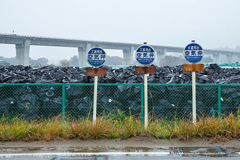 |
In the NewsMarch 6, 2021The Fukushima disaster was not the turning point many had hopedThe EconomistRichard Samuels quoted: “There’s been some change, but nothing at the pace commensurate with the promise,” argues Richard Samuels, author of “3.11: Disaster and Change in Japan”. |
 |
In the NewsMarch 3, 2021MIT and Danish university students unite to envision a more sustainable futureMISTIClimate action is among the top priorities for the Institute and one that demands global solutions. With Denmark’s reputation as a leader in sustainable thinking, finding a way to bring the two together presented a natural synergy for the MIT-Denmark program...The Green Campus Challenge was launched with these goals in mind, tasking student teams to develop proposals to make a more sustainable campus and also broaden their cross-cultural competencies and learn about how sustainability is perceived in another culture. |
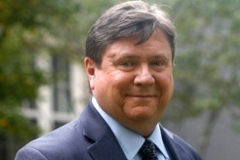 |
In the NewsFebruary 26, 2021US launches airstrikes against Iranian-backed militias in SyriaPeter O'DowdWBUR Here & NowThe Pentagon says the strikes in Syria targeted Iranian-backed militia groups in response to a rocket attack at a US base in Iraq last week. Host Peter O'Dowd gets the latest on the strikes, which mark the first military offensive of Biden's presidency, from security analyst Jim Walsh. |
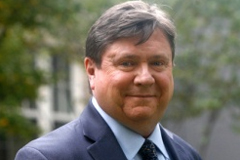 |
In the NewsFebruary 19, 2021Biden moves to restart Iran nuclear talksPeter O'DowdWBUR Here & NowThe Biden administration says the US would be willing to attend a meeting with European partners and Iran to “discuss a diplomatic way forward on Iran's nuclear program.” Jim Walsh explains and weighs in on this first real sign of rejoining the Iran nuclear deal. |
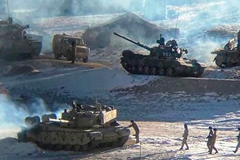 |
In the NewsFebruary 17, 2021China removes tanks and dismantles helipad, easing border tension with IndiaWill GlasgowThe AustralianM Taylor Fravel quoted: “In the near term, the disengagement greatly reduces the chance of military escalation between two nuclear-armed powers by creating buffer zones between their frontline forces,” said M Taylor Fravel, an expert on China’s territorial disputes at MIT. “In the longer term, it could serve as the basis for talks to reduce incidents along the LAC, especially in areas where the two countries view the location of the LAC differently,” Mr Fravel told The Australian. |
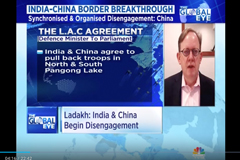 |
In the NewsFebruary 12, 2021Indian and Chinese troops start disengagement at Pangong Tso; experts discussCNBC-TV18The Chinese PLA have withdrawn over 200 tanks and have started removing troops from south Pangong region. Defence minister Rajnath Singh told parliament on Thursday that Indian and Chinese troops have reached an agreement on disengagement. To discuss this, Parikshit Luthra spoke to Ananth Krishnan, China correspondent at The Hindu, and M Taylor Fravel, director of security studies at MIT. |
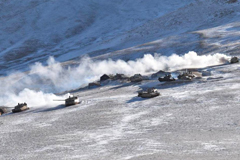 |
In the NewsFebruary 12, 2021How India stood its ground and forced China to end Pangong Tso aggressionSnehesh Alex Philip and Nayanima BasuThe PrintM Taylor Fravel quoted: “Although it remains early days, my view is that China is responding to the significant deterioration of US-China relations in the past year, and the way in which its international image has suffered in many countries, at a time when the party will launch the 14th five-year plan that is critical to its development goals,” Fravel added. |
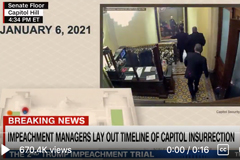 |
In the NewsFebruary 12, 2021Impeachment video shows Pence had 'nuclear football' as he moved away from Capitol riotMorgan GstalterThe HillVipin Narang quoted: “More jarring than seeing the ‘football’ follow Pence as he was being evacuated — it is just a communication device, at no point could it’s compromise have resulted in a launch — is knowing that the man who possessed sole authority to launch American nukes at the time incited this mob,” Narang wrote. |
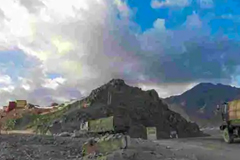 |
In the NewsFebruary 11, 2021Indian, Chinese armies begin pullback at LACRahul Singh and Sutirtho PatranobisHindustan TimesVipin Narang quoted: Vipin Narang, associate professor of political science at the Massachusetts Institute of Technology, said: “Let’s see what happens. Any movement toward disengagement is good, but it has to be real and sustained, and verified not just in Pangong but eventually elsewhere as well. It can’t be China pretending to disengage and India pretending to believe it.” |
 |
In the NewsFebruary 5, 2021To arms or to flight?Leda ZimmermanMIT Political ScienceWhy do some people fight and others flee when confronting violence? “This question has been bothering me for quite some time,” says Aidan Milliff, a fifth-year doctoral student who entered political science to explore the strategic choices people make in perilous times. |
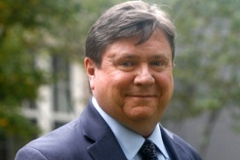 |
In the NewsFebruary 4, 2021US-Russia treaty restricting nuclear weapons extended for 5 yearsWBUR Here and NowThe Biden administration and Russia agreed to extend a nonproliferation treaty that restricts the two nations' arsenals of some of the deadliest weapons known to humankind. Jim Walsh weighs in. |
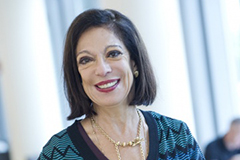 |
In the NewsFebruary 3, 2021Choucri connects the dots between technology and geopoliticsKatherine LeeAAASNazli Choucri’s work involves urgent and timely topics such as changes in international relations, conflict and violence, and the international political economy, with a focus on cyberspace and the global environment. She is profiled here by AAAS, where she was elected in 2020 as a fellow. |
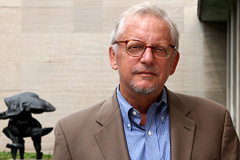 |
In the NewsFebruary 3, 2021Iran has done well to resist Trump’s maximum pressureMohammad MazhariTehran TimesThe rising tension between Iran and the Trump administration pushed some observers to claim that the JCPOA is dead, especially after the Arab-Israeli normalization and their efforts to form a coalition against Iran. John Tirman discusses with Tehran Times. |
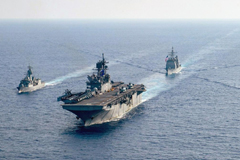 |
In the NewsFebruary 3, 2021China on the brink of "major crisis"Jamie SeidelThe Morning BulletinM Taylor Fravel quoted: “China's emphasis on operating in the grey zone recognizes the clear dangers of crossing the threshold for the use of force and have been employed precisely for this reason - to achieve national objectives without using force,” he says. “A leading Indonesian political figure once said to me that the PRC had no real soft power in Southeast Asia, but plenty of ‘money power’,” he says. |
 |
In the NewsFebruary 3, 2021Maritime disputes in East AsiaColumbia-Harvard China and the World ProgramColumbia UniversityA podcast featuring Taylor Fravel on key maritime issues in East Asia related to the South China Sea, the East China Sea, Taiwan, and the US role in the region. |
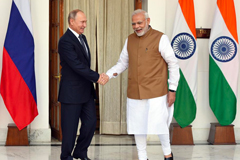 |
In the NewsFebruary 1, 2021Why India is facing possible US sanctionsRonak D DesaiForbesVipin Narang quoted: Dr Vipin Narang, professor and sanctions expert at MIT, notes that “even though India imports significant quantities of Russian military equipment, there does appear to be a particular and specific concern about S-400, one that caused the US to sanction a NATO ally, albeit one with which it has complicated relations.” The fact that Turkey “did not escape CAATSA sanctions suggests that the US is very concerned about the S-400 system.” |
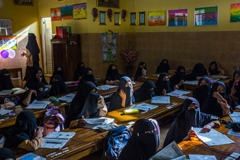 |
In the NewsJanuary 31, 2021With increasing authority, women are gaining space while preaching Islam on the InternetKSU | The Sentinel NewspaperRichard Nielsen heavily quoted: “When I found women preaching with authority on these sites, I was very surprised and wanted to know more,” explains political scientist Richard Nielsen, who teaches at MIT. He recently published a study on this topic, as part of his larger project to understand the impact of the Internet on religious authority. |
 |
In the NewsJanuary 30, 2021Nuclear proliferation is not fast, but it is frighteningThe EconomistRichard Samuels quoted: Such experiences change perspectives. Japanese conversations about nuclear weapons were once “sotto voce” and confined to a small cluster of “very conservative thinkers”, says Richard Samuels of MIT. Now, he writes in an article with his colleague Eric Heginbotham, “What once had been nearly taboo...has a conspicuous presence in Japan’s security discourse.” |
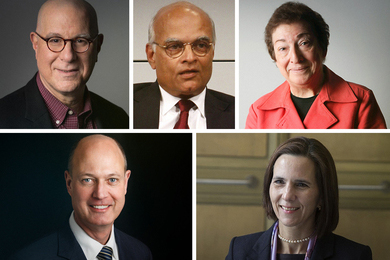 |
In the NewsJanuary 29, 2021Foreign policy advice: Don’t look backPeter DizikesMIT NewsThe Biden administration faces tasks ranging from reviving relationships with traditional partners, restoring agreements forged in the Obama administration, and tackling our ongoing global crises. The four panelists at the Starr Forum all spent time at MIT in the past, as Robert E Wilhelm Fellows at CIS. |
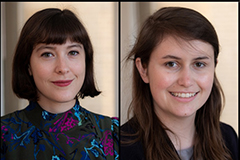 |
In the NewsJanuary 27, 2021PhD candidates Campbell-Mohn and Freeman among Kissinger’s Nolan Prize winnersThe Henry A Kissinger Center for Global Affairs at the Johns Hopkins University School of Advanced International Studies (SAIS) announced, in conjunction with the Center for Strategic and International Studies (CSIS) and Texas National Security Review, the 2020 Janne Nolan Prize winners for the best article on national security/international affairs. Congratulations to PhD candidates Emma Campbell-Mohn and Suzanne Freeman, who both received recognition for their work. |
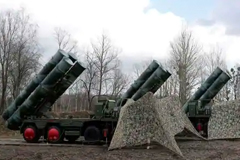 |
In the NewsJanuary 27, 2021India sticking to S-400 deal with Russia despite threat of possible US sanctionsRezaul H Laskar, Rahul SinghHindustan TimesVipin Narang quoted: “The fact that Turkey didn’t escape CAATSA sanctions suggests the US is very concerned about the S-400 system, and it's probably not just junk. India's insistence to take delivery of its first S-400 batteries later this year therefore sets the Biden administration potentially on a collision course on the sanctions question with India,” Narang said. |
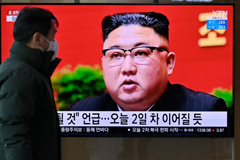 |
In the NewsJanuary 21, 2021North Korea’s new sub missile is first step toward a new ICBMMorten Soendergaard LarsenForeign PolicyVipin Narang quoted: “It’s just not survivable against the United States. In any crisis or conflict, I can only imagine that the US Navy or the [South Korean navy] would be there just blanketing the entire coast. I can’t imagine anything is going to survive,” said Vipin Narang, an associate professor of political science at the Massachusetts Institute of Technology. |
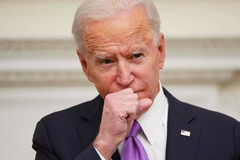 |
In the NewsJanuary 21, 2021Biden seeks five more years for last Russia nuclear pact but no 'reset'AFP NewsVipin Narang quoted: “The only opponents are those who seek an unlimited arms race. Glad to see the Biden administration dispensing with reckless games of chicken with global security on Day One,” tweeted Vipin Narang. He said the Biden administration can still find other ways to pressure Russia over its concerns on so-called tactical nuclear weapons — which Moscow could deploy in hot conflicts close to home, as opposed to strategic weapons that mostly target the United States. “This buys the sundae without precluding future sprinkles,” Narang said. |
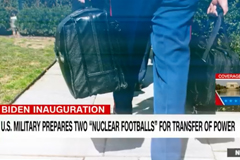 |
In the NewsJanuary 19, 2021How Trump will hand off the 'nuclear football' to BidenZachary CohenCNNVipin Narang quoted: “The easiest way to think about it is there is a seamless cutover as to which ‘biscuit’ is valid at noon Wednesday,” according to Vipin Narang, a nuclear policy expert and professor at MIT. “Biden's biscuit would not be valid at 11:59 am, and Trump's would not be valid at 12:01 pm.” |
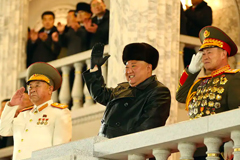 |
In the NewsJanuary 18, 2021North Korea’s Kim could be planning missile launch to welcome Biden administrationSimon Denyer and Joby WarrickThe Washington PostVipin Narang quoted: Narang would not rule out a provocative test but said it is equally possible that Kim, already struggling to keep the coronavirus at bay, maintain food production and prop up the economy, could bide his time. “Time is on Kim’s side, so why rock the boat, especially given potentially serious domestic problems?” he asked. “Kim doesn’t need to be the new kid screaming for attention, especially if he can quietly improve and expand his force, as he’s doing.” |
 |
In the NewsJanuary 18, 2021Taylor Fravel on China Power Project PodcastThis special episode of the ChinaPower podcast is the fourth of five featuring the audio from the China Power Project's fifth annual conference, which comprises five live online debates. The fourth debate took place on December 9, 2020 and featured two experts debating the following proposition: Within the next five years, China will use significant military force against a country on its periphery. |
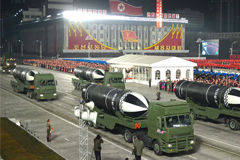 |
In the NewsJanuary 15, 2021North Korea shows off new submarine-launched missile at military paradeWilliam GalloVOAVipin Narang quoted: “The only thing that makes sense to me is that these developments are setting the stage for a solid fuel ICBM. To me that has to be the end game here,” tweeted Vipin Narang, a nuclear specialist at the Massachusetts Institute of Technology. |
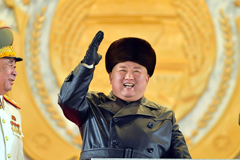 |
In the NewsJanuary 15, 2021North Korea unveils new submarine-launched missile at paradeJesse JohnsonThe Japan TimesVipin Narang quoted: “I’m struggling to understand the logic of this rapid SLBM development and evolution with no real survivable submarine and the only thing that makes sense to me is that these developments are setting the stage for a solid fuel ICBM,” Vipin Narang, a North Korea expert and professor of international relations at MIT, wrote on Twitter. “To me that has to be the end game here.” |
 |
In the NewsJanuary 14, 2021‘A more general anxiety’: Gun sales soared nationwide in 2020Anissa GardizyThe Boston GlobeJohn Tirman quoted: John Tirman, executive director of MIT’s Center for International Studies, said he believes US gun sales were up in 2020 due to a “general instability of society.” “It does relate to the election, and Trump, and the possibility that Biden could try to enact gun control, but I think it is a more general anxiety,” he said. |
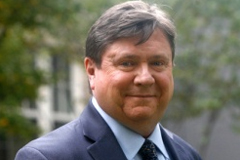 |
In the NewsJanuary 12, 2021Questions of national security arise amid uncertainty in DCWBUR Here and NowThere are questions about national security in the aftermath of what happened at the US Capitol last Wednesday when President Trump's supporters stormed the building. Jim Walsh weighs in. |
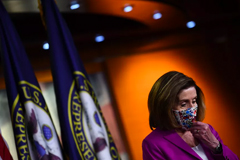 |
In the NewsJanuary 8, 2021Trump has the authority to launch nuclear weapons — whether Pelosi likes it or notJennifer Williams and Alex WardVoxVipin Narang quoted: “So long as Trump remains in office, he retains the legal authority to solely launch some or all of America’s nuclear weapons until 12:01 pm on January 20, or until he is removed from office,” Vipin Narang, a nuclear security expert at MIT, told Vox. “Any ‘safeguards’ that could effectively prevent POTUS from exercising sole authority to launch nuclear weapons are either illegal or illusory.” |
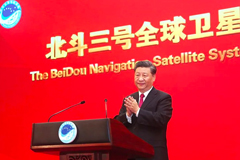 |
In the NewsJanuary 5, 2021Chinese President Xi Jinping wrests greater control over China's military; revises National Defense LawANIThe Free Press JournalM Taylor Fravel heavily quoted: “This marks only the fifth time that the PLA has changed its operational doctrine since 1949.”... Fravel added: “The promulgation of a high-level doctrinal document suggests that the PLA is consolidating the changes to improve joint operations that were part of the unprecedented reforms that began in late 2015. In fact, it likely signals confidence that the reforms have been successful.” |
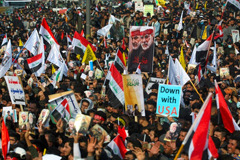 |
In the NewsJanuary 4, 2021Iran eyes Biden but could conflict still erupt with Trump?Shaun TandonAFP NewsVipin Narang quoted: “We have a new form of deterrence now -- schizophrenic deterrence. We don't know what we're doing,” said Vipin Narang. Instead of looking tough by reversing the Nimitz's return, “it may send the wrong signal – which is that it's total chaos in Washington right now and if you're going to take a shot, maybe this is the time you want to do it.” |


